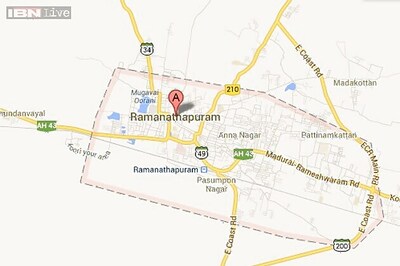
views
New Delhi: In an attempt to further promote cashless transactions in rural semi-urban areas, the Goods and Services Tax (GST) Council on Saturday decided to offer cashbacks to consumers on a trial basis for every digital payment made via Rupay cards, BHIM application and UPI system.
According to PTI, volunteer states will roll out incentives on pilot basis for digital payments, and the GSTN — the IT backbone of the GST network — and the National Payments Corporation of India will develop a system soon for the same, interim finance minister Piyush Goyal told reporters after the GST Council meeting here.
Once implemented, customers making payments through Rupay card and BHIM UPI will get a cashback of 20% of the total GST amount, subject to a maximum limit of Rs 100, interim Finance Minister Piyush Goyal said, terming the move a step towards formalisation of the economy.
“We have decided to undertake a pilot project. A broad framework has been worked out so that users of Rupay debit card, BHIM, Aadhaar, UPI, USSD transactions can be given the incentives because these are mostly used by poor people,” Goyal said.
A group of ministers under Bihar deputy chief minister Sushil Modi had worked out the cashback mechanism on Friday and assessed that the revenue loss on account of it would be Rs 1,000 crore annually.
The council has decided to prepare the software and backend for this (cashback incentive) and whichever state volunteers for it, the pilot can be run in that state itself and impact on revenue can be assessed, Goyal said.
The GST council also set up a six-member panel of ministers under minister of state for finance Shiv Pratap Shukla to look into the issues of the MSME sector.
Other members of the ministers’ panel are Delhi deputy CM Manish Sisodia, Bihar deputy CM Sushil Modi, Assam finance minister Himanta Biswa Sarma, his Kerala counterpart Thomas Isaac and Punjab finance minister Manpreet Singh Badal.
Simultaneously, the law and procedure as well as rates related issues for the MSME sector would be considered in detail by the law committee and the Fitment Committee comprising central and state tax officers. They will give their recommendations to the GoM, Goyal said. The ministerial panel is expected to finalise its report within six weeks.
On the issues faced by MSMEs, Sisodia said ever since the GST has been rolled out, there were concerns of the sector. In the pre-GST regime, small businesses with turnover of up to Rs 1.5 crore were exempt from excise duty.
While on one side there are big businesses who give more taxes, on the other side, there are small businesses who are large in number, who gives employment. Both have to be given importance.
“The rule should not be such that we brainstorm for those who give more tax to government, and small business just continue to pay taxes,” Sisodia said, adding that the GST council will work out a framework to support MSMEs.
Badal said small and medium enterprises provide 70-80 per cent employment in the country, but were suffering huge losses.
What has been decided is that GoM within next six weeks will give a report on how industries can be enabled to compete and what are the processes which are destabilising the smaller players, Badal said.
The next meeting of the GST council will be held on September 28-29 in Goa.
Meanwhile, tax experts welcomed the council's decision to offer GST cashbacks on pilot basis, highlighting that it would not have a significant impact on revenue.
“It is good that the government is planning to do a pilot for only limited number of users and not for all digital payments, which was initially contemplated. It will also mean that revenue impact of this decision would not be very significant,” PWC Partner and Indirect Tax Leader Pratik Jain said.
EY Tax Partner Abhishek Jain said, “The incentivising of digital payments would help in maintaining a better database by the government and tracking the footprint of various taxpayers.”




















Comments
0 comment